Snapchat often gets overlooked when marketers talk about social advertising. Are Snapchat ads worth it in 2022? Isn’t Snapchat old news, now that Instagram and Facebook have Stories and Reels, and TikTok has taken over the world?
In reality, Snapchat is better than ever for brands. Snapchat usage has consistently risen every year, including a 52% increase in daily active users between 2020 and 2022.
Besides that, Snapchat:
- Is the social network of choice for 15-25 year olds with 48% using it daily, and 35% consider it their most important social channel.
- Has 557 million monthly active users, putting it ahead of both Pinterest and Twitter.
- Advertising reaches 75% of all Millennials and Gen Z’ers.
Here’s everything you need to know to plan and run a successful Snapchat advertising campaign.
Bonus: Download a free guide that reveals the steps to create custom Snapchat geofilters and lenses, plus tips on how to use them to promote your business.
What are Snapchat ads?
Snapchat ads are full-screen, unobtrusive ads that users see sandwiched between organic content.
Ads on Snapchat can be an image or video. They range from 3 seconds to 3 minutes long, and must be in a 9:16 aspect ratio with a minimum resolution of 1080px x 1920px. There are two exceptions to this: Lens AR and Filters ads, which are sponsored elements people use in their own content.
Types of Snapchat ads
There are 7 Snapchat ad formats, each with a wide range of creative possibilities.
1. Single image or video ads
These ads look like organic Snapchat content and are a great format for many objectives, from brand awareness to driving a specific action. Any photo, GIF, or video can be an ad.
Beauty brand Wella earned a 600% lift in consideration intent with a series of simple video ads, combined with a longer Story ad.
These ads are the “bread and butter” format that should be part of every campaign. Mix and match these with any of the other ad types below.
And while you can create a 3 minute ad… don’t.
Keep it short and fast-moving to prevent users from skipping it: Anywhere from a few seconds to about 10 seconds is the ideal balance for communicating your message while maximizing views.
Ad specifications
File type: MP4, MOV, JPG, PNG (can also be a GIF if exported as a MP4 or MOV format!)
Aspect ratio: 9:16
Resolution: Minimum 1080px x 1920px
Length: 3-180 seconds
Call to action/attachment options: Link to your website, app, a longer video, or a Snapchat AR Lens
Copy specs
Brand name: up to 25 characters
Headline: up to 34 characters
Call to action: Choose the text, Snapchat will place it over your ad
2. Collection ads
Collection ads are used for ecommerce sales conversions. To use this format, you need to upload your product catalog to Snapchat Ads Manager. You can add it manually, or connect to Shopify — or many other platforms — for live syncing (recommended).
These ads showcase your products in a video or picture and allow you to feature 4 clickable product tiles along the bottom.
Kitsch communicated the value of their hair-drying scrunchie quickly and simply with this video ad and listed their 4 most popular scrunchies in the product tile section. As a result, they achieved a 600% return on ad spend (ROAS) and cut their cost per purchase in half compared to their previous Facebook campaign.
Plus, they reached a new audience: The coveted 13-17 female demographic they couldn’t capture on other platforms, which made up 29% of ad conversions in this campaign.
When someone taps a product tile, they’re taken directly to your product page for a quick and easy checkout.
It goes without saying that the landing pages for your products should be mobile-optimized: Prioritize speed over everything else.
Take full advantage of the Collections format by installing Snap Pixel, which captures actions on your website—like purchases, products viewed, add to cart, and more—to optimize ad targeting and spend.
Ad specifications
File type: MP4, MOV, JPG, PNG (can also be a GIF if exported as a MP4 or MOV format!)
Aspect ratio: 9:16
Resolution: Minimum 1080px x 1920px
Length: 3-180 seconds
Call to action/attachment options: 4 featured product tiles
Copy specs
Brand name: up to 25 characters
Headline: up to 34 characters
Call to action: Default is “Shop Now” on the product tile row
Product tile specs
File type: JPG or PNG
Resolution: 160px x 160px
Attachment: URL for each featured product image (can use the same URL for all 4, if desired)
3. Dynamic Collection ads
Once you upload a product catalog, Snapchat can automatically create dynamic product ads for you.
To use this feature, you need:
- A product catalog added to Snapchat Ads Manager.
- Snap Pixel installed on your website.
- The following fields correctly installed within your Snap Pixel:
- Purchase
- Add to Cart
- One of: View Content or Page View (to track product page visits)
- To have collected targeting data for at least 1,000 Snapchat ad users in your Snap Pixel.
From there, you can set up the campaigns for either retargeting or prospecting goals, depending who you want to reach, and Snapchat handles the rest.
A word of caution: Automated ads sound like a good idea since they’re so easy, and often, they’re a great addition to your advertising strategy. Keyword: Addition.
Running one automated campaign is not an advertising strategy. Nor does it guarantee success. Don’t rely on dynamic ads as a “set it and forget it” format. You still need to review analytics, test new strategies, and, yes—run human-created ad campaigns, too. In fact, manual campaigns should be your focus, and think of dynamic ads as the icing on the cake.
4. Story ads
Story ads on Snapchat are single image or video ads—but in a series. You can have between 3 to 20 of these ads in a sequence, mimicking the experience of tapping through a friend’s Snapchat Story. In addition to appearing between organic Stories, your Story ad is also listed on the Discover page, which can bring in great views.
Stories are one of the most engaging formats ever created. Seriously, retention of brand Stories is as high as 100%. Since this ad format is based on the engagement leader, you best believe your Story ads need to be engaging with a capital “E.”
Hot sauce brand TRUFF’s Story ads highlighted the best visual asset of their product: It’s ooey-gooey-ness. Simple ads focusing on this mouth-watering element combined with goal-based bidding earned TRUFF a 162% lower cost per impression and 30% lower cost per purchase compared to other platforms.
Lesson? Keep your Story ads short, snappy, and to the point. Cut out anything that isn’t absolutely necessary to your message (or entertaining enough to stay in). It’s better to have a series of 3 highly engaging Story ads than 10 ads where viewers skip after the 5th.
Ad specifications
File type: MP4, MOV, JPG, PNG (can also be a GIF if exported as a MP4 or MOV format!)
Aspect ratio: 9:16
Resolution: Minimum 1080px x 1920px
Length: 3-180 seconds
Call to action/attachment options: Link to your website, app, a longer video, or a Snapchat AR Lens
Copy specs
Brand name: up to 25 characters
Headline: up to 34 characters
Call to action: Choose the text, Snapchat will place it over your ad
Discover page specs (unique to Story ads)
Your logo: PNG format, 993px x 284px
Tile image: PNG format, 360px x 600px
Story ad title: Up to 55 characters
5. Commercial ads
Want guaranteed ad views? Commercials are your answer. These video ads show up in Stories content but users cannot skip them, and come in two formats:
- Standard: Between 3-6 seconds and entirely unskippable.
- Extended: Between 7 seconds and 3 minutes, with the first 6 seconds being unskippable.
While you could make a 1 minute+ long commercial ad, you really shouldn’t. The best use of this format is the standard option: A 6 second quick, snappy ad to build your brand awareness and let users get back to what they were doing.
Making these too long can risk annoying users, who will likely be counting down the 6 seconds until they can skip it anyway. Not effective. Instead, if you want to showcase longer, engagement-focused videos, use the regular Video ad format so you’re not needlessly paying extra for the non-skippable feature.
Wondering what you can do in 6 seconds or less?
Part of a larger television and Snap ads campaign, Subway’s 6 second “emoji reaction” Commercial ads earned an incremental reach of 8%. Meaning, 8% more people saw the ad in total thanks to Snapchat, compared to only the TV audience.
Plus, adding other Snapchat Ads formats increased that to a 25.2% incremental reach. In total, 75% of Subway’s views were the only place those users saw the ads, showcasing the unique audience-building potential of Snapchat ads.
Bonus: Download a free guide that reveals the steps to create custom Snapchat geofilters and lenses, plus tips on how to use them to promote your business.
Ad specifications
File type: MP4 or MOV (H.264 encoding)
Aspect ratio: 9:16
Resolution: Minimum 1080px x 1920px
Length: 3-6 seconds for Standard; 7-180 seconds for Extended
Call to action/attachment options: Add a website link, AR lens, or long-form video
Copy specs: none; video-only ad
6. AR Lens ads
Lens ads are like sponsored camera filters. You create them, and Snapchat users can apply them to their content.
There are two types of augmented reality lens ads:
- Face lenses: Use the front-facing camera to add features to, or transform, a user’s face.
- World lenses: Use the rear-facing camera to add elements to the frame.
Thanks to Snapchat’s easy, web-based Lens Builder, anyone can create Lens AR ads.
The best branded Lens ads use them to either build excitement for an upcoming launch/event/product, or serve as a “virtual try on.” Think lipstick or hair color shades for beauty brands, like NYX’s full virtual store where users could try on a variety of products and shop them from the app:
In 2021, the most popular face Lens was “3D Cartoon,” which has been used 7 billion times.
The possibilities are endless for world-based Lenses, like this one from the Royal Ontario Museum that adds a whale to your space.
Lens ads are perfect if your product is something users can try on, especially if it’s something people always try on before they buy, like sunglasses or jewelry. But sometimes simple is great, too. Snapchat users love to show their faces on camera, but don’t always want to show their real faces. Create a fun transformation effect that catches on and it could earn you a lot of brand awareness.
Ad specifications
- Branding: Needs to include either your name or logo, usually at the top left or top right.
- Restrictions: Cannot alter a user’s skin tone. Cannot promote violence, or contain profanity, QR codes, URLs, social media handles, or otherwise violate Snapchat’s advertising policies.
7. Filter ads
Unlike Lens ads, which track users’ faces or surroundings in real-time, filters are static image overlays users can add to Snaps.
There are two types of Filter ads:
- Location-based (GeoFilter): Only available to Snapchatters in specific areas you choose, at a set date and time.
- Audience-targeted: Targets your Snapchat Ads audiences, including demographic and interest-based targeting.
Anyone can create a custom GeoFilter in a few minutes starting at around $5 for a small area, although Filter ad costs per impression are additional. The tool is useful for previewing how your ad will look.
When I tested this, a suburban location of the same size was $5 and an urban one was $12 for a 24 hour filter.
Ad specifications
File type: PNG with at least 50% of it being transparent
Resolution: exactly 1080px x 2340px
Buffer space: Keep 310px from the top and bottom of the image clear
Size: 300KB or less
Branding: Must include your logo
Restrictions: Cannot promote violence, or contain profanity, QR codes, URLs, social media handles, or otherwise violate Snapchat’s advertising policies.
How to create Snapchat ads in 5 steps
Creating ads on Snapchat is similar to most other social platforms. Here’s exactly how to get started.
Step 1: Create a business account
Sign up for a Snapchat account, then login to Snapchat Business Manager. If your account isn’t already a Business account, click Open a Business Account at the top right and fill out the quick form.
Click the + New Ad Account button and fill out the required info.
Once you’ve set up an ad account, you need to connect it to your Snapchat username. At the top left, click on Business to bring up the menu and go to Ad Accounts.
Click on your new ads account, scroll down to Public Profiles, click on the textbox to find your Snapchat accounts, select the appropriate one to link to the ads account, and click Connect Profile.
Step 2: Select your ad type inside Snapchat Ads Manager
Now it’s time to make ads. Bring up the top left menu again and go to Create Ads.
A fork in the road: Quick and easy or ultimate control? Instant Create gets you up and running with a single ad in minutes, using Snapchat’s recommended ad settings for your goal. Advanced Create allows you to create complex campaigns and control every aspect, including targeting, budget, bid strategy, and more.
Note: Instant Create is limited to single image or video ads. If you want to create a filter, Lens AR, or other ad type, you’ll need to use Advanced mode.
If using Advanced Create mode, install Snap Pixel to track user behavior on your site and maximize your conversion potential.
Step 3: Select a goal
For this article, we’ll choose Instant Create. Then, choose a goal for your ad:
- Website visits
- Local business promotion
- Getting leads to contact you
- App installs (conversions)
- App visits (awareness)
Follow the straightforward prompts for whichever goal you pick.
The Instant mode features a live preview of your ad as you build it.
Step 4: Set your budget
Choose your targeting and budget options, hit Publish, and you’re good to go.
Instant mode does a good job of keeping the interface simple while still offering a decent amount of targeting flexibility. By default, you can target Snapchatters by gender, age range, and location.
Click Show Advanced Targeting to also target users by interests or device type, including specific phone models.
Choose a budget you’re comfortable with, fill out your address, and click Publish. Done!
Step 5: Try Advanced mode
For more options, including more control over targeting and custom audiences, try the Advanced Create mode next time. You get access to Collection, Lens, Filter, and Commercial ad types plus the ability to create a campaign with multiple ad groups.
Include Snapchat ads in your next paid and organic campaign strategy and experiment with all the features the platform offers.
How much does Snapchat advertising cost?
Like all platforms, every advertiser and campaign is different. What’s universal, though, is rising ad prices. The average CPM for Snapchat ads was $2.95 USD in 2018, compared to rivals Facebook ($5.12 USD) and Instagram ($4.20 USD).
Those were the glory days of 95% automated ad buying and Snapchat purposely luring advertisers away from the older, established networks.
Now? The global average CPM, across all platforms, is $9.13 USD. Big oof.
It’s not all doom and gloom. Many marketers report great results from their well-targeted Snapchat campaigns, like this one with an almost 50% lower CPC on Snap compared to Facebook.
Cost isn’t only about money, either. A study found that Gen Z users spend less time with ads but remember them better than any other age group. Time is money: The less of it you need to sway shoppers, the better.
In an almost two year Nielsen study, Snapchat ads consistently delivered twice the overall ROI compared to existing social and digital ad benchmarks.
Snapchat advertising best practices
These tips aren’t rocket surgery, but there’s no shame in checking you’ve got the basics covered.
Know your audience
Snapchat reaches 75% of Gen Z and millennials, though engaged users definitely skew to the younger side, with the majority being between ages 18-24. If that fits your target audience, great. If not, Snapchat ads aren’t your best bet.
More than demographics, use your existing custom audiences to boost the success of your Snapchat campaigns. Before you start advertising, upload your email list as an audience, create lookalike audiences, use Snap Pixel, and experiment with other Snapchat custom audience features.
Know your goal(s)
All the components of your social marketing strategy need to be part of a goal. Goals can be specific, like increasing sales by 20%, or general, like building brand awareness.
Stuck on setting goals other than, “Get followers, make money?” Learn to set S.M.A.R.T. social media goals and use them in your advertising strategy.
Test and tweak
Snapchat’s algorithm is pretty good at automatically optimizing your dynamic ads based on the goals you choose, but don’t leave it all up to the bots.
Run your own A/B tests, check your analytics, and try out new visuals, headlines, and copy. As you learn what works best with your audience, update your campaigns regularly to incorporate those lessons.
The post Snapchat Advertising in 2022: How to Run Effective Snapchat Ads appeared first on Social Media Marketing & Management Dashboard.

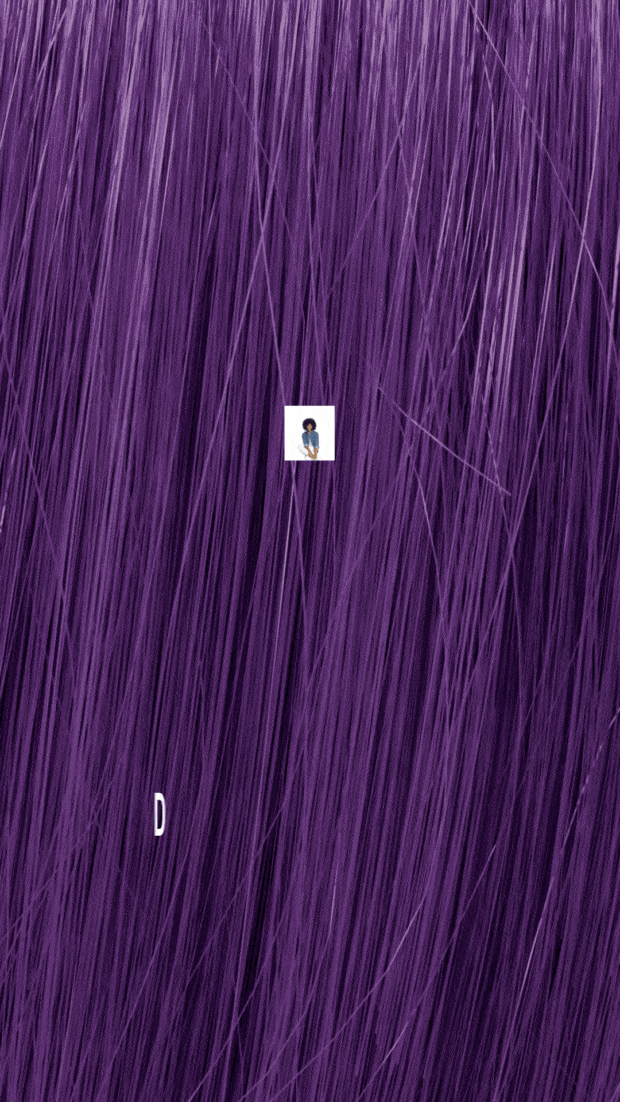
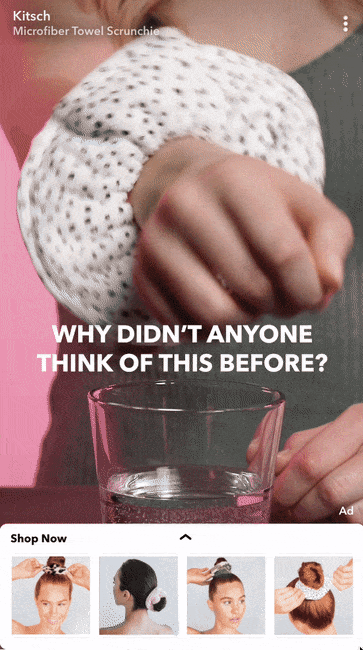
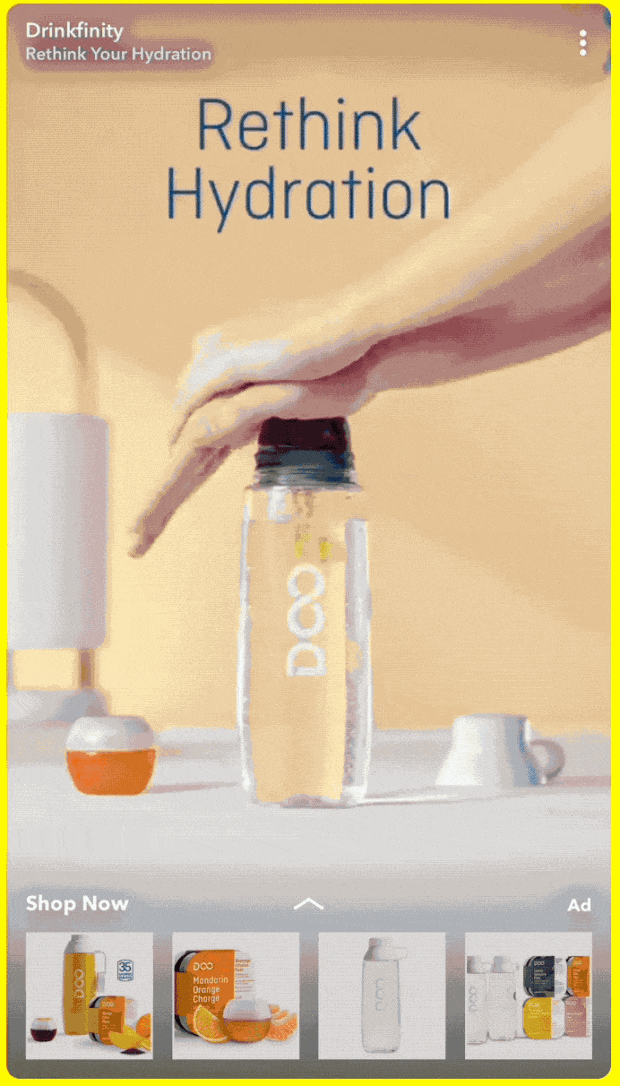
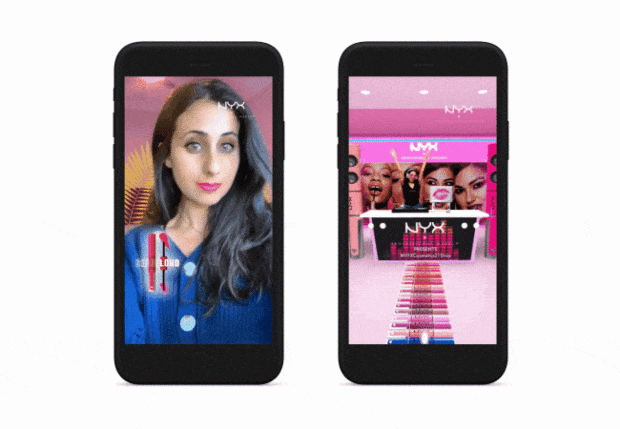
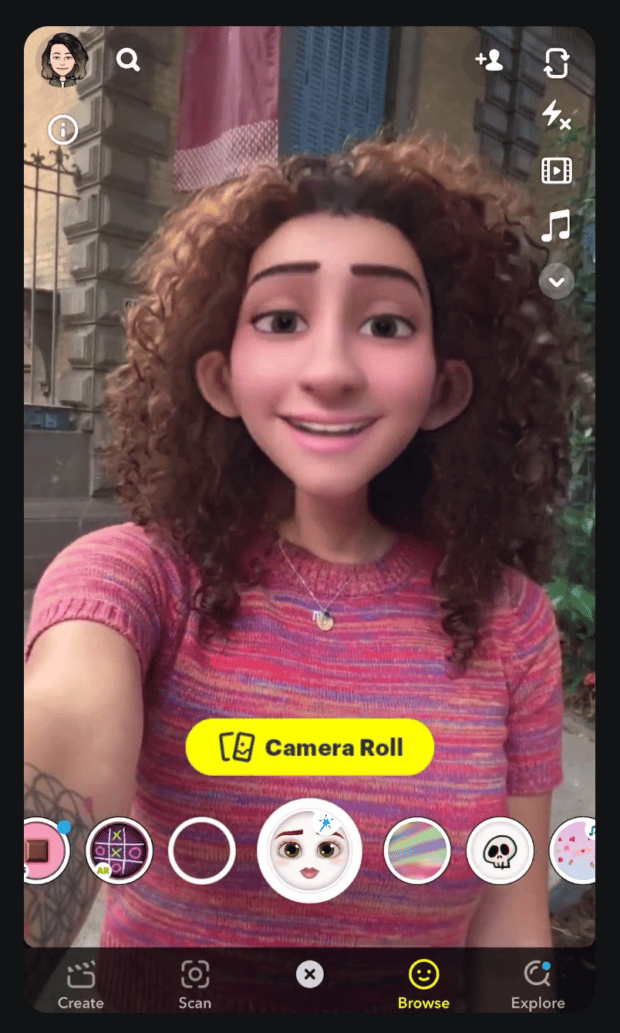
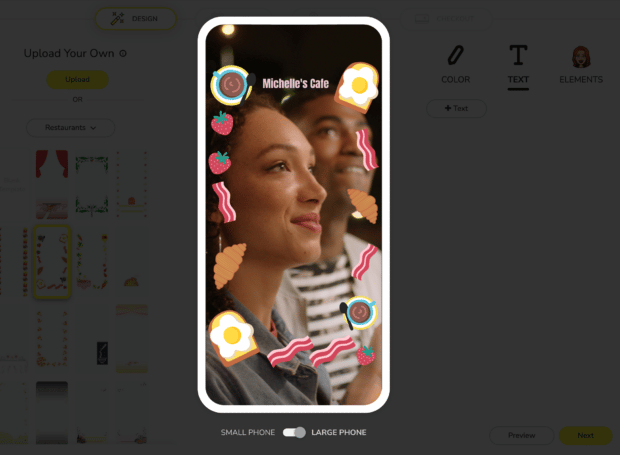
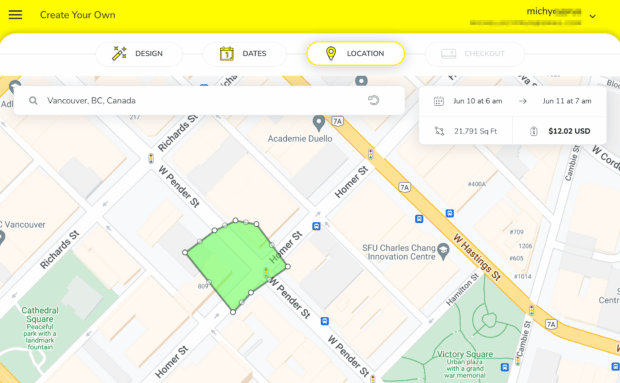
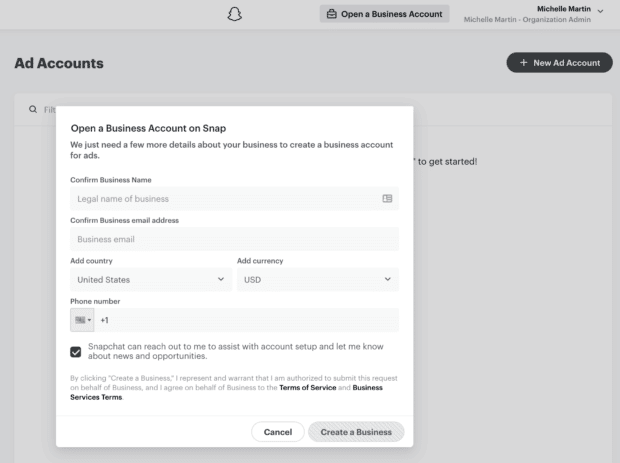

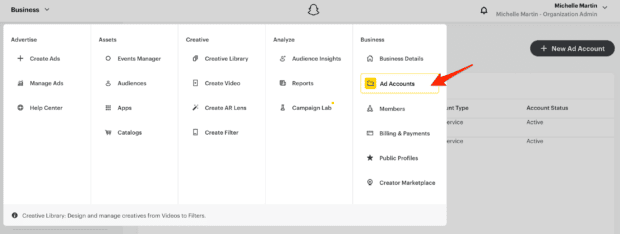

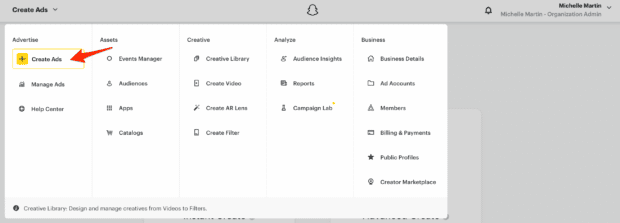
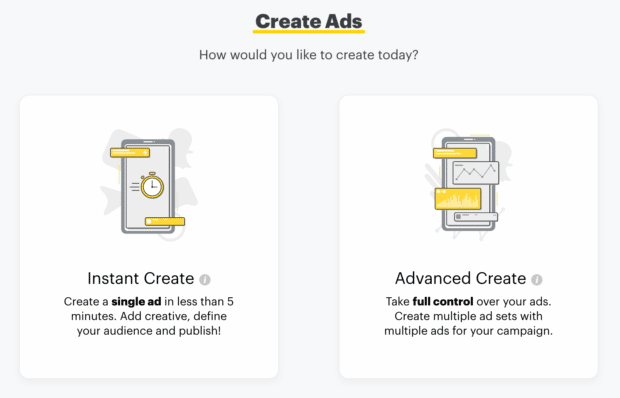

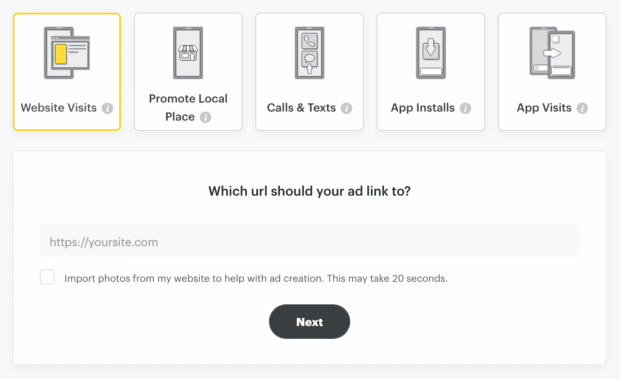
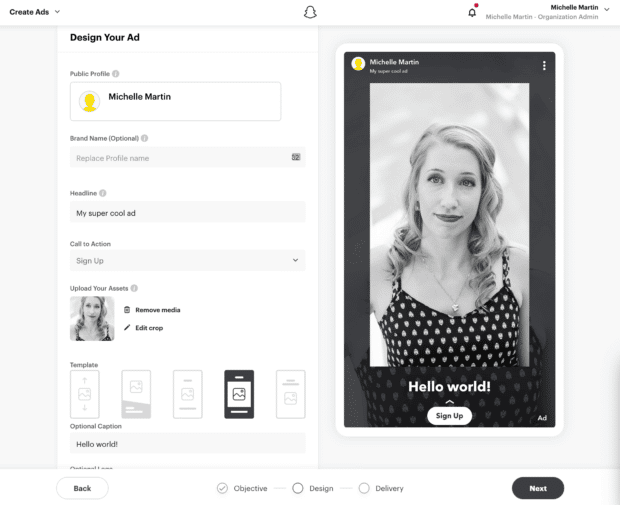
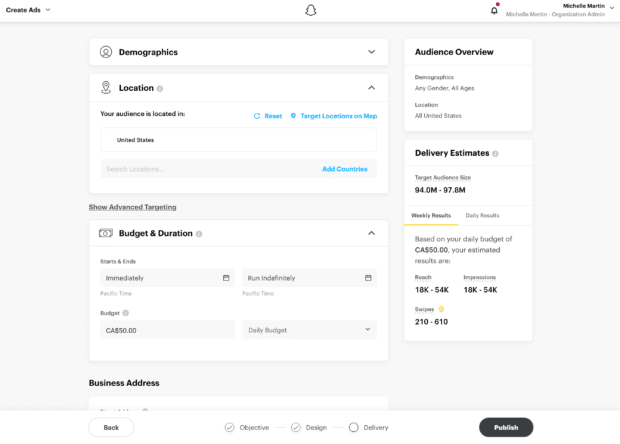
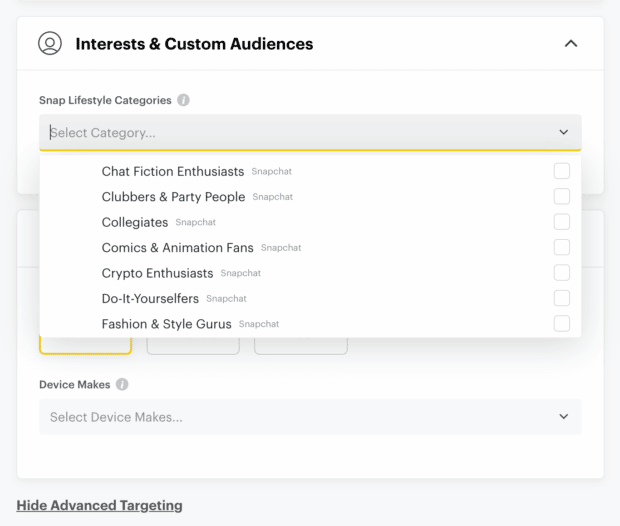
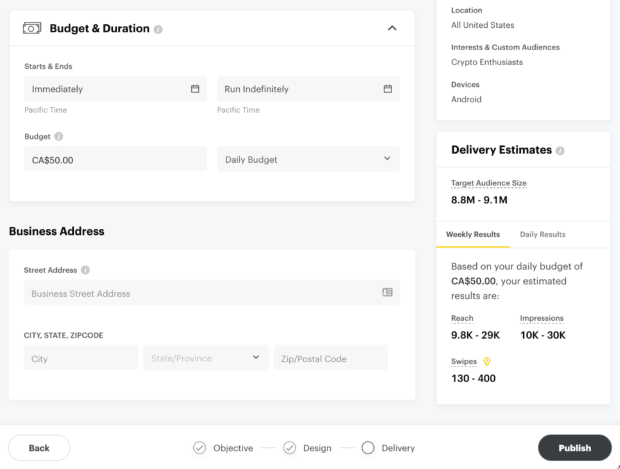
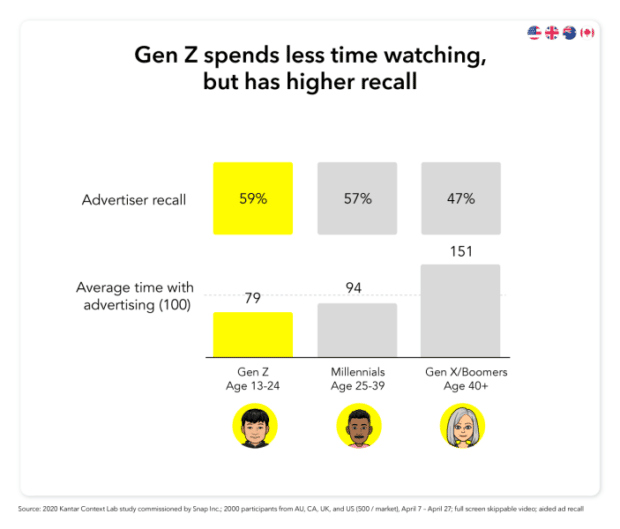
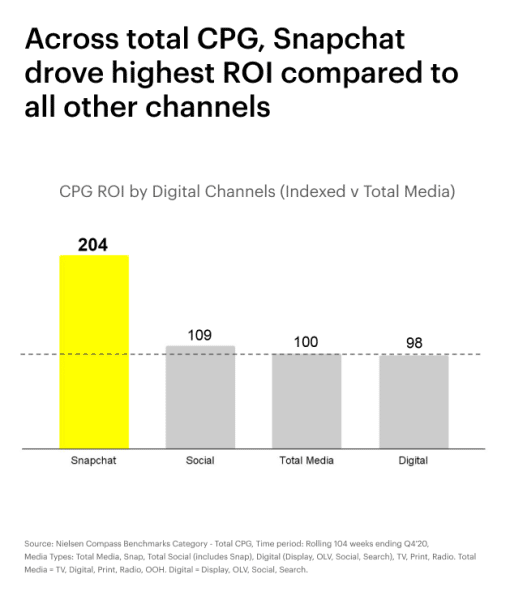




Recent Comments